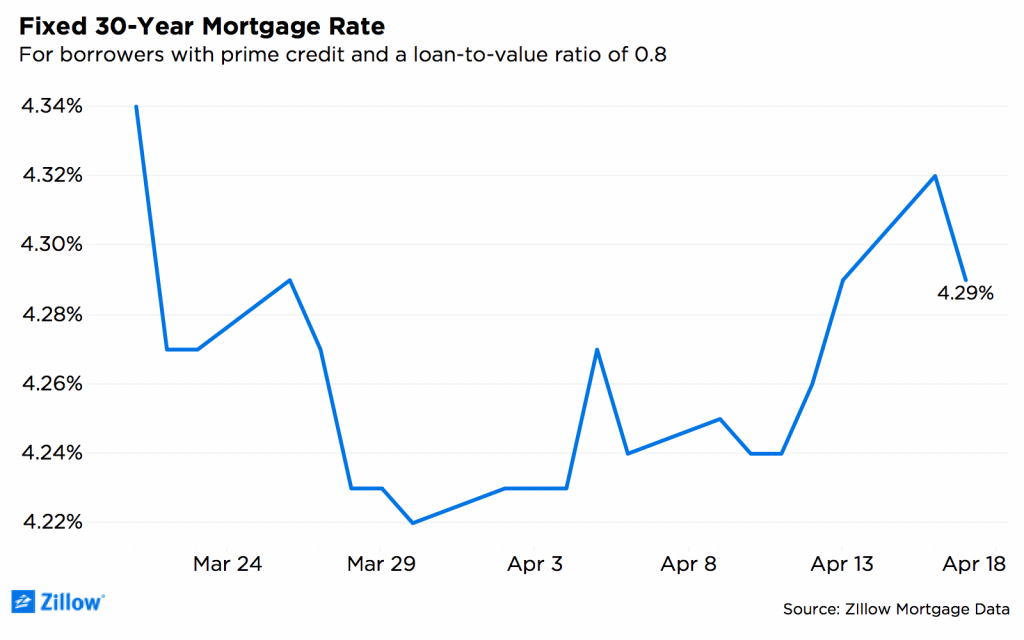Economic Strength Continues to Steady Mortgage Rates in the Face of Political Shocks
While geopolitical headlines temporarily seized markets’ attention – as they have time and time again over the past few years – underlying macroeconomic fundamentals continue to point to a reasonably strong U.S. economy.
Mortgage rates increased last Thursday and Friday as the prospect of an expanded conflict in the Middle East flared in the runup to Friday evening’s military strikes in Syria by the United States, the United Kingdom and France. However, rates reclaimed most of those gains early this week as a broader conflict failed to materialize. Rates are now about 4 to 5 basis points higher than they were a week ago.
While geopolitical headlines temporarily seized markets’ attention – as they have time and time again over the past few years – underlying macroeconomic fundamentals continue to point to a reasonably strong U.S. economy. Incoming housing starts and industrial production this week confirmed the trend. More housing market data and several speeches by key voters on the Federal Open Market Committee (FOMC) early next week should further corroborate this view.
Despite reasonably strong economic data, the yield curve remains relatively flat: Long-term interest rates have not increased nearly as much as short-term interest rates over the past year. This has sparked some market speculation about whether the flat yield curve points to a looming downturn or a more lasting shift in relative demand and supply for long-term assets. Regardless of the broader implications, the result has been that home shoppers continue to benefit from relatively low mortgage rates going into the traditional home shopping season.


